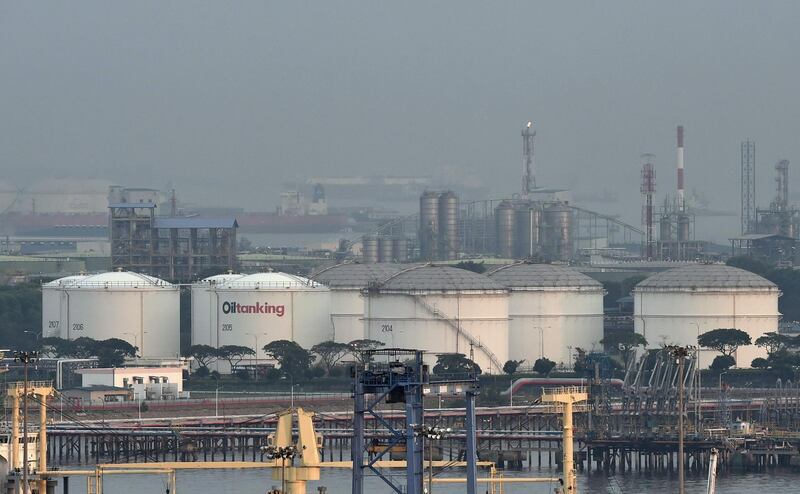HSBC and a clutch of other banks have a combined exposure of at least $3 billion (Dh11bn) to Singapore’s Hin Leong Trading, and are in talks with the privately-held oil trader over shoring up its finances, according to people with knowledge of the matter.
A group of about 10 lenders including HSBC, Singapore’s three largest banks, Standard Chartered and Deutsche Bank held a virtual meeting with the oil trader and its advisers on Tuesday, the people said, asking not to be identified because they aren’t authorized to speak publicly. HSBC has the biggest exposure to Hin Leong at about $600 million, they added.
Singapore’s closely-knit oil trading community is gripped by speculation over the predicament of one of its biggest players and the potentially far-reaching impact its difficulties could have on the market and trading partners. Before crude’s spectacular crash due to the coronavirus crisis, it would have been almost unfathomable that a company of Hin Leong’s status could be in such a position.
Bloomberg reported last week that some banks wouldn’t issue new letters of credit to the trader because of concern over its ability to repay the short-term debt. Nobody responded to calls or emails to the company seeking comment.
DBS Group Holdings, Singapore’s largest lender, has an exposure of about $300m to Hin Leong, while its local competitors Oversea-Chinese Banking Corp and United Overseas Bank are owed at least $100m each.
Representatives for HSBC, Standard Chartered, Deutsche Bank and the three Singapore lenders declined to comment.
Among the measures discussed at the Tuesday meeting were debt reduction, extending loan maturities and some form of moratorium on repayments, according to one of the people.
The banks are planning to come back early next week on possible solutions, and will likely appoint an adviser to help them in their negotiations, another person said.
The Monetary Authority of Singapore, the nation’s financial regulator and central bank, last week eased capital requirements to give banks more leeway to bolster lending during the coronavirus-fuelled slowdown.
Founded by legendary self-made Chinese tycoon Lim Oon Kuin, Hin Leong could be the latest casualty of the collapse in oil prices and a heightened caution among lenders to finance commodity trades.
The company was established in 1963 and has grown into one of Asia’s largest suppliers of ship fuel, or bunkers. OK Lim, as the founder is known, built the company from a one-man, one-truck oil dealer to a regional powerhouse with assets including 130 vessels and businesses across oil trading, terminal and storage, bunker supply and lubricants manufacturing, according to its website.
The company’s bunkering arm, Ocean Bunkering Services, was ranked the third-largest shipping fuel supplier in Singapore last year, according to the city-state’s Maritime and Port Authority. Singapore is the world’s biggest shipping fuel bunkering hub.
Letters of credit are a critical financial lifeline for commodity traders, used as a way of financing short-term trade. A bank issues the letters on behalf of the buyer as a guarantee of payment to the seller. Once the goods have exchanged hands, the buyer repays the lender.







